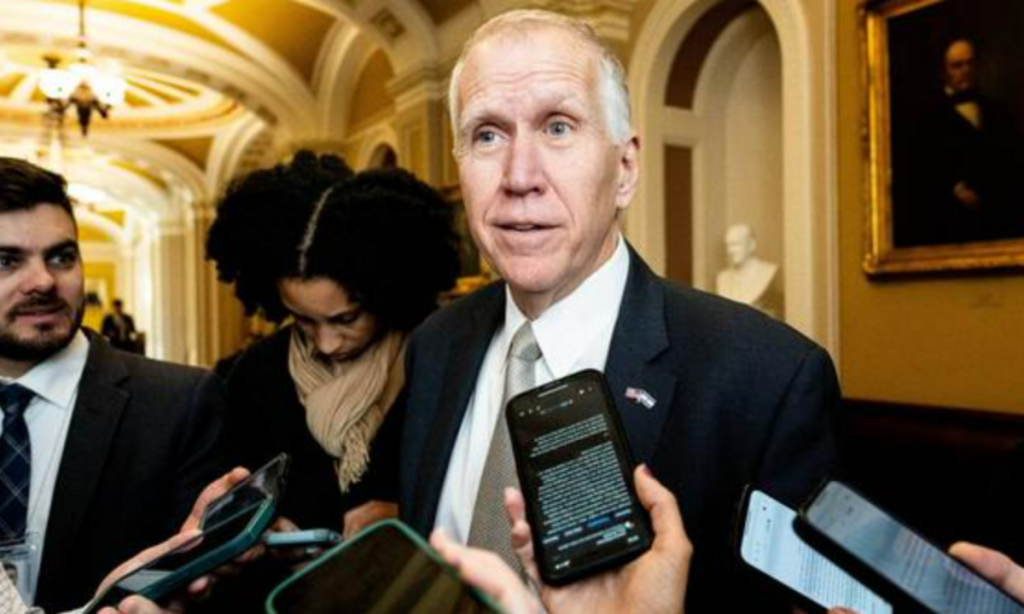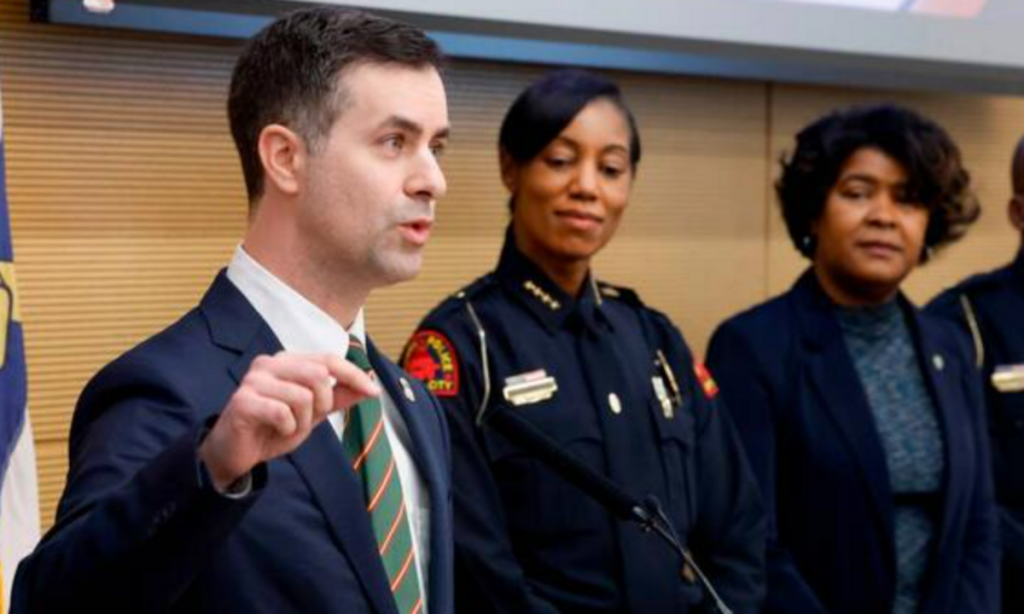The future of a secretive federal investigation in North Carolina is now in question after Michael Easley Jr., the U.S. Attorney for the Eastern District of North Carolina, stepped down from his position.
Easley, who was appointed by President Joe Biden, played a key role in investigating Republican spending related to state legislative projects. With his departure, many are now wondering how the investigation will proceed under a new appointee, likely chosen by President Donald Trump.

The Federal Investigation: What’s Being Investigated?
The investigation involves several North Carolina Republican figures, including Marion Warren, Aaron Thomas, and Jordan Hennessy, who have been named as “relevant parties” in federal subpoenas. These subpoenas are connected to state legislative spending, particularly funds allocated to projects like dredging in Dare County and grants to a nonprofit aimed at tackling domestic violence.
One of the most significant parts of this investigation centers on COVID relief money that was given to a nonprofit focused on using technology to fight domestic violence. Warren and Hennessy were linked to $3.5 million in state funding that was directed toward the nonprofit Caitlyn’s Courage, which raised concerns over possible misuse of funds.
These actions have raised alarms about potential corruption and improper handling of state resources, with lawmakers accused of using public money to support personal interests.
The Shift in Leadership: What Happens Next?
Now that Easley has stepped down, the big question is whether the investigation will continue. The U.S. Attorney’s office typically plays a major role in overseeing investigations into political corruption, but with a new U.S. Attorney likely appointed by President Trump, there are concerns that the investigation might slow down or be dropped entirely.
As Chris Cooper, a political science professor at Western Carolina University, pointed out, there is a concern that Trump’s appointee might not have the same commitment to following through with this investigation. While it is unclear what will happen, the possibility that the investigation could end has many people watching closely.
Political Connections and the Investigation’s Complications
The investigation also involves Marion Warren, a former Republican state judge who later became involved in academic work. Warren is known for his connections to Trump advisor Mark Martin, who played a role in advising Trump on how to remain in office after losing the 2020 election. This has raised questions about whether these high-level connections might influence the investigation.
Another key figure, Jordan Hennessy, has long been active in Republican politics and has ties to the Catawba Two Kings Casino project that Donald Trump Jr. publicly supported. Hennessy’s role in securing state funds for projects in Dare County, including a $15 million dredging contract, is under scrutiny, with federal authorities looking at how the money was allocated and spent.
U.S. Attorney Appointments and Their Impact on Investigations
U.S. Attorneys are appointed by the president and typically play an important role in overseeing investigations in their districts. While it is not uncommon for new presidents to appoint their own U.S. Attorneys, there is precedent for allowing the outgoing U.S. Attorney to continue investigations into important cases, as seen when President Barack Obama allowed George Holding to remain in office to investigate corruption cases involving Democrats.
However, there is concern that under a Trump-appointed U.S. Attorney, the investigation into these Republican figures might be slowed down or dismissed. This is especially significant because the investigation is linked to people with close ties to Trump, raising questions about political influence and corruption.
Looking Ahead: What Does This Mean for North Carolina?
As the investigation faces an uncertain future, there are worries about the long-term impact of these developments on North Carolina’s political landscape. If the investigation is not allowed to proceed, it could send a signal that political corruption goes unchecked in the state. On the other hand, if the investigation continues, it could expose major flaws in how state resources are being handled by Republican lawmakers.
Regardless of the outcome, this case highlights ongoing concerns about the intersection of politics and public office, and whether investigations into corruption are truly fair and free from political influence.
Conclusion: A Turning Point for NC Politics
With the investigation hanging in the balance, North Carolina’s political future could be shaped by the choices made in the coming months. Whether the investigation will continue or be shut down depends largely on the appointment of a new U.S. Attorney and whether that person can navigate the political challenges involved in such a high-profile case. As of now, the fate of the investigation—and its impact on North Carolina’s government—remains uncertain.
Disclaimer—Our team has checked this article to ensure its accuracy and eliminate any misinformation. We are committed to providing clear and reliable information for our readers.


